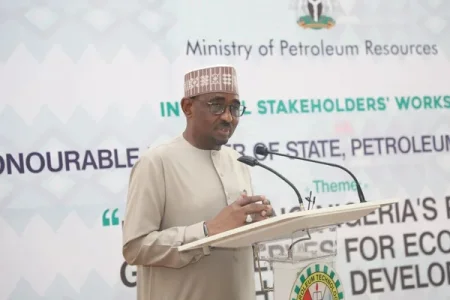
NMDPRA clarifies that Dangote refinery is at 45% completion and has not been licensed, addressing concerns about energy security and product quality. Social media reactions are mixed, with users questioning political interference and the refinery's progress.
The Nigerian Midstream and Downstream Petroleum Regulatory Authority (NMDPRA) has announced that the Dangote refinery remains at the pre-commissioning stage and is only 45% complete. Farouk Ahmed, CEO of NMDPRA, clarified to state house correspondents that the refinery has not yet been licensed and addressed concerns about the supply of petroleum products nationwide.
Ahmed refuted claims from some media outlets that NMDPRA was attempting to undermine the Dangote refinery. He highlighted the refinery's current status and emphasized the need for multiple refineries to ensure energy security and prevent market monopolies. Ahmed explained that Dangote had requested a halt to all importation of petroleum products, specifically automotive gas oil (AGO) and jet kerosene, directing all marketers to rely on the refinery. However, he pointed out that this could pose risks to the nation's energy security and create a monopoly.
Ahmed also raised concerns about the quality of products from the Dangote refinery, noting that its sulphur content ranged between 650 to 1200 parts per million (ppm), compared to the imported quality of 50 ppm, which meets West Africa's standards.
On June 4, Aliko Dangote claimed that international oil companies (IOCs) struggled to supply crude to his refinery. This claim was later dismissed by Gbenga Komolafe, CEO of the Nigerian Upstream Petroleum Regulatory Commission (NUPRC), who described it as erroneous, citing the Petroleum Industry Act (PIA) that governs willing buyer-willing seller transactions.
On July 17, Dangote Industries Limited (DIL) reiterated that IOCs were frustrating their efforts to acquire crude feedstock for the refinery.
Social media reactions were mixed. Some users speculated about political interference and questioned the refinery's quality and progress. Others criticized the government's handling of the situation, while some defended Dangote, emphasizing the importance of local refining for Nigeria's economy.




